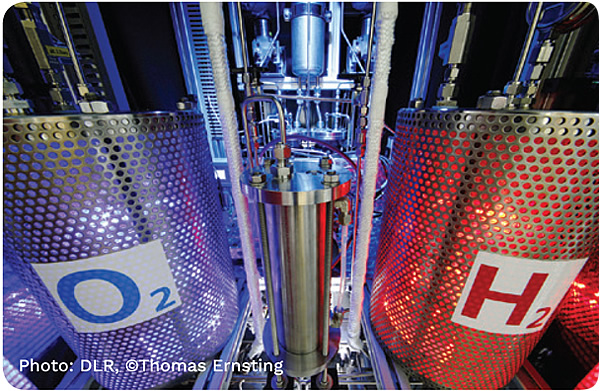Hydrogen is an energy carrier, a fuel and a feedstock, which can reduce greenhouse gases emissions if produced adequately.
Likewise, hydrogen can strengthen
energy independence and mitigate the challenges posed
by variability and intermittency of renewable energy
systems as it offers a clean, sustainable, and flexible
option to convert renewable electricity into a chemical
energy carrier. As such it can be used in mobility, heat and
industrial applications. As the "gaseous form of electricity",
it is an enabler for sectoral integration, which allows the
transmission of renewables into the different sectors.
Hydrogen is indeed a key component of the future of
energy systems that will accelerate the transition to a
carbon-neutral system. It also presents opportunities in
terms of job creation, technological leadership, and wider
environmental protection for Europe.

The hydrogen economy is already a hundred billiondollar
market worldwide. It is today mainly used for
the production of fuels (50% of the market), fertilizers
(43%) and various industrial processes (6%) such as the
production of glass, iron, as well as various food products
such as margarine. Other uses of hydrogen exist but are
still marginal on a global scale with 1% of the market:
- the propulsion of vehicles - cars, buses, trains, boats;
- the production of electricity and heat for commercial and residential use;
- renewable energy storage in the form of hydrogen, or substitution of natural gas with hydrogen in industrial and domestic applications.
These uses are, therefore, likely to grow.
The ability of hydrogen to access and integrate each
sector of the energy system opens up the opportunity
for deploying and utilising renewables to a much
greater extent. Whereas electricity derived from
renewables provides the power sector with a profound
decarbonisation pathway albeit limited by the power
grid, the heat and mobility sectors as well as industry
do not yet have decarbonisation pathways of equivalent
significance. Hydrogen technologies in a power system
integrating high penetration of Renewable Energy Sources
(RES) can operate throughout long periods of nonconsumption-
oriented production of renewable energy by
feeding hydrogen into one or more energy sinks (e.g.: the
gas grid, the storage tanks of hydrogen refuelling stations,
salt caverns). Stored hydrogen can be used on various
timescales for satisfying demands for heat, transport,
power or industry achieving high utilisation and absorption
of energy. The versatility of hydrogen enables these
sectors to be integrated and to contribute to Europe's
energy transition.
"Sectoral integration means the integration of several sectors such as the power, transport, agriculture, the energy-intensive industries and/or the heating and cooling sectors via the use of energy carriers such as hydrogen."
About Hydrogen Europe
Hydrogen Europe is the European association representing the interest of the hydrogen and fuel cell industry and its stakeholders. We promote Hydrogen as the enabler of a zero-emission society. With more than 110 companies, 70 research organisations and 16 national associations as members, our association encompasses the entire value chain of the European Hydrogen and fuel cell ecosystem collaborating in the Fuel Cell Hydrogen Joint Undertaking. We are a Brussels-based association fostering knowledge and pushing for fact-based policy making ensuring that the European regulatory framework enables the role of Hydrogen in our society. For more information, please visit www.hydrogeneurope.eu and follow us on Twitter @H2Europe!